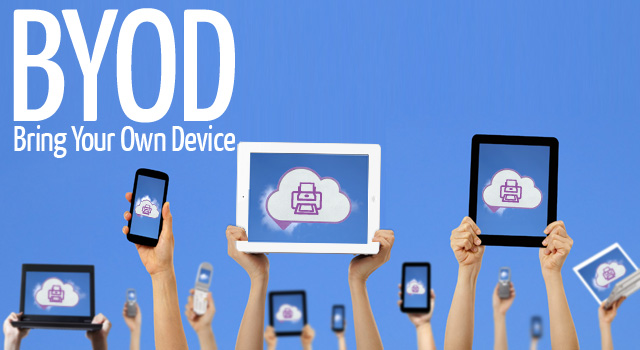Have you considered adopting a “Bring Your Own Device” policy at work? Think BYOB party rules except this would be giving the responsibility of purchasing smart phones and/or laptop computers for work entirely to the individual employee rather than the company paying for these work-related items. Of course, the pro’s for you as an employer include cost-savings on such devices, and simplifying the workplace technology policies by eliminating at least a couple electronic devices from the list. But what about the downside of this concept? Here are a few reasons why we would NOT suggest adopting a policy like this in your workplace.
1. Your company data is all held on someone else’s phone – which means you lose proprietary rights to most (if not all) of it. Of course, the exact details on this would need to be ironed out in litigation, but trust us, it won’t be fun or end favorably for you as the employer.
2. What happens if a device is lost or stolen? Who replaces it? The ambiguity here gets quite messy. The company’s information is on the device, but the employee is fiscally responsible for the device. So who pays when something happens in the course of doing work required by the job description?
3. How do you purchase software for the laptop? Again, who is financially responsible here if the software is required to perform the essential functions of the job?
4. Who supports the software? Do you have an IT department that is responsible for going on employees’ personal devices to perform software updates? Again, this becomes quite messy as the lines are not clearly drawn between employer responsibility and employee responsibility/privacy.
5. Although allowing the employee to choose their device (for instance, the age-old fight between iPhone addicts and Android loyalists) may seem easier, it won’t be easier to wipe their personal device clean when they leave work.
In the long-run, it’s best to have a work device for work to be done. You can allow for the employee to use the work device as their personal phone/computer as well, with the understanding that upon termination of employment, they will lose all personal data on the device. Giving the employee a little bit of freedom to use the device (within reason) at their discretion for personal tasks and affairs, is a better scenario for you as the employer than requiring the use of a personal device for work-related tasks.
Want more information on how to protect your company from these types of policy decisions? Consider an HR audit and complete review of your existing policies and procedures in order to make the best changes moving forward as we enter the last few months of 2016!

